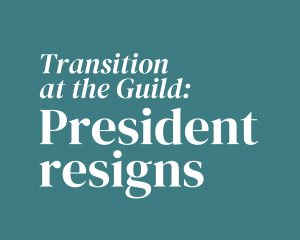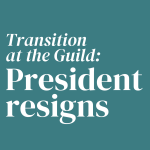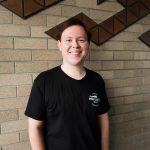Why a constitutionally enshrined First Nations Voice is essential
You may have seen a new ad pop up on your socials. An advertisement launched on September 26th by Uluru Statement leaders imploring Australians to vote “yes” to a First Nations Voice to parliament in a future referendum.
The ad begins with Pitjantjatjara and Nyungar man Trevor Jamieson telling a story to children from a hypothetical about how the First Nations people succeeded in gaining a Voice to Parliament with the support of all Australians.
‘I have a story to tell you’, Mr Jamieson says. ‘It’s about how these people, the first people, got a voice.’
When asked if the story is true, Jamieson’s response, ‘it could be,’ is a call to action for all Australians.
Speaking to Women’s Agenda, Cobble Cobble woman and Uluru Dialogue Co-Chair Professor Megan Davis said the ad intends to highlight how all Australians have an opportunity to play a part in shaping this pivotal moment.
‘It’s vital in these next few months that we continue this momentum and educate Australians on what the Voice is, why it matters and what it will do for the future,’ she said.
‘We hope this ad will encourage Australians to learn more and support a First Nations Voice to Parliament.’
So, what is a Voice to Parliament and why is it important?
Aboriginal and Torres Strait Islander peoples represent 3.3% of the Australian population, and are legally recognised as the first inhabitants of Australia. However, the Australian constitution does not recognise First Nations Australians, and laws are often made that impact First Nations people without their consultation.
First Nations Australians have been negatively impacted by British colonialism from its beginning. This is obvious by the lack of recognition of Indigenous Australians since the inception of the Constitution in 1901. Before the 1967 referendum, First Nations Australians were referred to twice in the Constitution. Section 51 (xxvi) granted the government power to make ‘special laws’ for Indigenous Australians when it was ‘deemed necessary’. This power allowed the state and federal government to create their own policies negatively targeting Indigenous Australians, which transpired into forcibly removing their children. Section 127 provided that First Nations Australians counted weren’t recognised as part of the Australian population and were therefore excluded from the national census. Today, the Constitution still has an amended version of Section 51 (xxvi), where it does not specify whether parliament can make laws based on race for a positive or negative impact and various legal proceedings in the past several decades have interpreted new laws in ways that detract from First Nations’ rights.
In 2010, the Gillard Government established the Expert Panel on Constitutional Recognition of Indigenous Australians, which eventually presented its recommendations to parliament in 2012. They were rejected.
But the political discussion continued to move forward, and after a series of additional reports and an extensive public consultation process, the National Constitutional Convention was held in May 2016 at Uluru.
From this convention, Indigenous Australian leaders drafted a form that future constitutional recognition should take. This is known as the Uluru Statement from the Heart, and marked the first time in Australian history where legal reform was conducted by an extensive and collaborative consultation process with First Nations people.
A part of the Statement is the recommendation of a protected political voice (Voice) recognised by the Australian Constitution. The Voice is intended to be an Indigenous representative body that serves the purpose of directly advising both chambers of parliament on laws and policies relating to Indigenous affairs. The Voice would serve as a powerful political symbol of Indigenous sovereignty, and ensure that First Nation peoples are included properly and fully in the decisions that affect them. By constitutionally entrenching the Voice’s existence, the hope is that future governments will consider Indigenous views on legislation.
As noted in the Uluru Statement, the Voice does not include veto power over government legislation or policy. Its existence is to be enshrined in the Constitution, and its function is to be legislated, so there is no legal obligation for governments to engage with the Voice, but its existence alone will prevent First Nations people from being silenced in policy debates.
The body has no veto power, and is not a third chamber of parliament as it was erroneously referred to by the Turnbull government.
Ultimately, the enshrinement of a First Nations’ Voice will protect Indigenous consultation against the power of the Commonwealth and the government of the day while upholding the purpose of the Uluru Statement and legitimate constitutional status. Due to the political nature of parliament and the power of the Commonwealth, the Voice would be susceptible to abolition if not constitutionally entrenched. Therefore, the existence of the Voice should be entrenched in the Constitution, while the specific functions of the board should be left to be legislated.
There has been longstanding constitutional silence of Aboriginal and Torres Strait Islander peoples, and the enshrinement of a First Nations’ Voice could be one way of addressing and rectifying that silence.
The Uluru Statement and process to a referendum reflects an extensive Indigenous leadership and consultation process. First Nations people have appeased the Australian government and conservative concerns by amending the constitutional issues that were raised in previous proposals (like removing the risk of disturbing the balance between the Parliament and the Courts).
To blatantly reject the recommendations from the Uluru Statement or to offer weaker forms of recognition, such as a legislated Voice, Australia would be undermining the cultural authority of all who participated in regional dialogues, including Elders, Traditional Owners, and community representatives.
Constitutional enshrinement would provide legitimacy and constitutional status that can only be achieved through a referendum. For a First Nations Voice to be enshrined, it must receive a double majority from the people of Australia and the states, reflecting active participation from the Australian population in popular sovereignty and supports the foundations of responsible government.
There is evidence that Australians would support a referendum. An Omnipoll in 2017 conveyed 60.7 per cent of Australians were in favour of the proposal (despite the negative comments from the then government). Additionally, the 2018 Australian Reconciliation Barometer Final Report found 58 per cent of non-Indigenous Australians think it is very important for First Nations peoples to have a say in matters that directly affect them. The recent draft wording of the Voice to be inserted into the Constitution has been supported by 64 per cent of Australians.
The current government have promised to call a referendum within the current parliamentary term to pose the question to the Australian people on whether the Constitution should be amended to incorporate a Voice.
Currently, First Nations people occupy a uniquely vulnerable position unlike any other group in Australia for three key reasons:
- The constitutional relationship between the colonising state and Indigenous Australians has placed them in a particularly powerless position, evident through historical constitutional elements designed to exclude them.
- First Nations people represent a significant minority – only 3% of the Australian population – and are increasingly vulnerable in failing to receive adequate protections that reflect their values and rights.
- Disproportionate and extreme socio-economic disadvantage exposes First Nations people to continued and exacerbated disempowerment.
A Voice would not elevate First Nation peoples above other Australians, it will begin to alleviate the current gap between Indigenous and non-Indigenous Australians. Until the Constitution reflects the rights of First Nation peoples, Australia can’t hope to rectify the longstanding disparities between Indigenous and non-Indigenous Australians, which completely defies our key value; equality.








